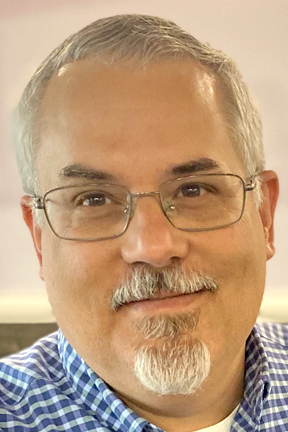Calling • Acts 9:3-16
By Roland L. McMillan

At the end of Acts 8, the Jesus movement and the gospel message are spreading out from Jerusalem because of persecution (Acts 8:4). The face of that persecution was the face of Saul, often called by one of his other names, Paul. (Roman citizens had more than one name, just as we do in our society.) With the endorsement of the high priest, Paul traveled to Damascus to root out followers of Jesus, a six-day journey. The lesson passage begins in Acts 9:3 as Paul approached Damascus and faced a sudden overwhelming light. He hit the ground and heard the voice of Jesus asking him about the persecution. Paul had no idea who was speaking, but the speaker said he was being persecuted. Paul asked for the identity of the speaker. The answer changed his life, and it would change the history of the world. Jesus was speaking to him. Paul was stunned. He had believed that the church’s message about Jesus was a dangerous lie. He had believed that the idea of a crucified Messiah was ridiculous. Now, as he encountered Jesus, he realized that he was the one who had not known the truth. Jesus had been crucified and had died, but Paul realized that he was very much alive. The claims of resurrection were true. The Messiah had come, and Paul had missed him.
As the encounter with Jesus ended, Paul realized that he was blind. His traveling companions led him into the city. Jesus had told him that he would be given instructions in the city, so he waited. He did not eat or drink anything for three days. The reason may have been to show repentance, but, more likely, the reason was shock. He was shocked that the claims of the Jesus followers were true. Luke’s description of Paul in his refusal to eat or drink and his blindness is the portrait of a broken man. Paul may have been sincere when he thought that Jesus was a fraud, but he was sincerely wrong. The entire direction of his life had been wrong. He had been attacking people who were right. During those three days, his mind was racing to make sense of it all. Luke does not describe his thoughts for us, but almost certainly he would have been mentally going through Scripture and reevaluating everything. Knowing that the Messiah had been crucified and resurrected would have required a complete reorientation for Paul.
Meanwhile, the Lord spoke to a local believer named Ananias about going to Paul and restoring his sight. Ananias answered with facts about Paul the persecutor. Ananias was not refusing to obey. He was confused. This man was a terror, a menace to the church. Why would God command him to go to Paul and to restore his sight? Then Ananias learned that Paul was God’s “chosen instrument.” Ananias came to realize that Paul was beginning to follow Jesus. He obeyed and went to Paul. When Ananias called him “brother,” he could have meant as a fellow Jew, but probably meant that Paul was now a Christian brother. He placed his hands on Paul to restore his sight and mentioned Paul being filled with the Holy Spirit. Throughout Acts, the Spirit’s coming into a person’s life always is associated with a person beginning to follow Jesus, but there is no set formula for how this happens. In this case, there is no mention of any kind of outward sign of the Spirit’s coming, like tongues. Since Paul was now a Jesus follower, Ananias baptized him. Baptism always is associated with a person beginning to follow Jesus throughout Acts.
Maybe no one realized it at the time, but the history of the world pivoted when Jesus appeared to Paul on the road to Damascus. He was God’s “chosen instrument.” As the story continues in Acts, Paul quickly became a public face for the Jesus movement. After Acts 12, he took center stage in Luke’s description of the spread of the gospel message. The persecutor became the persecuted apostle to the Gentiles, a great leader of the church. The total reorientation of Paul’s life, the complete change in direction, is encouraging. If a man who was a terror to the church can change so radically because of Jesus, we cannot assume that anyone is beyond hope.
McMillan is pastor of Prentiss Church, Prentiss.




